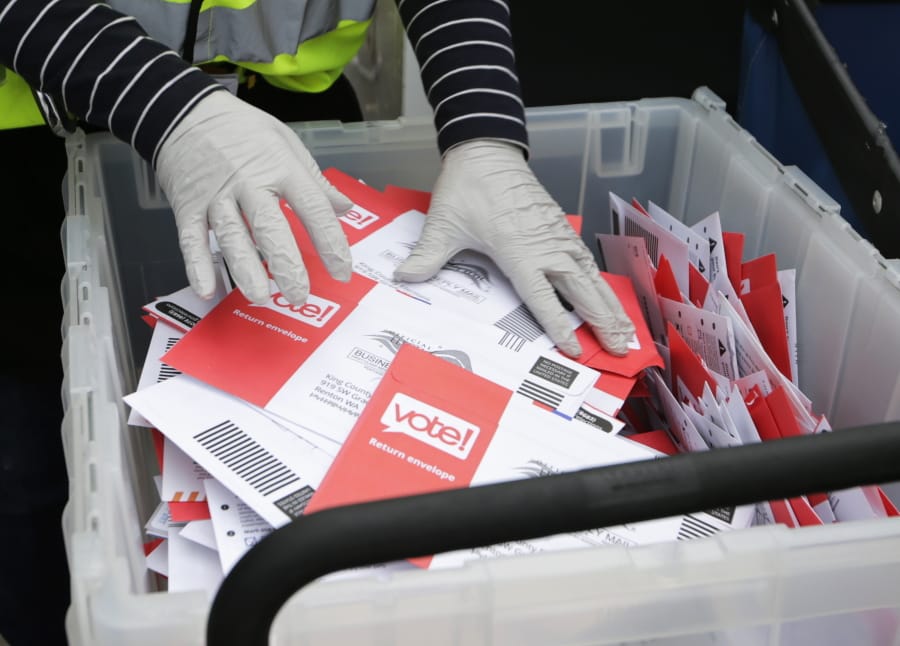WASHINGTON — While Wisconsin struggles to hold its primary on Tuesday, President Donald Trump and Democrats are bickering over how to provide voters with safe and secure access to a ballot as the coronavirus pandemic rages in the U.S. and threatens to extend into the fall, affecting the general election.
With another economic rescue package in the works, House Speaker Nancy Pelosi says she wants money to give more voters the chance to cast their ballot by mail, an option that would allow people to vote without the concern over the safety of polling places.
But Trump opposes voting by mail and is leading Republicans in a battle to limit its use, arguing that it would encourage fraud and lead to so many people voting that his party could not win.
But the 2020 presidential election is creeping ever closer, and there are no signs yet of the pandemic abating, nor any word on when Americans on orders to stay home can resume normal life, so lawmakers are trying to figure out how to allow for voting in a world where face-to-face contact causes anxiety at the least and possibly sickness and death.
The debate is playing out now in Wisconsin. It stands apart from other states that have delayed primaries because of the virus, though Democratic Gov. Tony Evers has issued a statewide stay-at-home order.
Evers initially joined Republican leaders in seeking to hold the primary as planned on Tuesday, but he now favors an all-mail election with absentee voting well into May. Republicans maintain that Tuesday’s in-person voting should go on as planned.
Republicans have said they will ask the U.S. Supreme Court to block extended absentee voting in Tuesday’s primary.
The election features the Democratic presidential primary between Joe Biden and Bernie Sanders, but a bigger concern for Republicans is a state Supreme Court race that pits a conservative incumbent against a liberal challenger.
In recent weeks, as Democrats nationwide have argued the country must prepare for voting largely by mail, Republicans have objected to or blocked expansions of such voting in Arizona, Georgia and Pennsylvania.
“It shouldn’t be mail-in voting. It should be you go to a booth and you proudly display yourself,” Trump told reporters Friday evening. Earlier last week on Fox News Channel’s “Fox & Friends,” he claimed the Democrats had a plan “that if you ever agreed to it you’d never have a Republican elected in this country again.”
More than 290,000 people in the United States have tested positive for the virus so far, prompting more than a dozen states to delay their presidential primaries. Health officials are warning that the virus has the potential to return with a second wave during the next flu season, putting voters and poll workers in a dilemma where fulfilling a civic duty means putting their health at greater risk.



